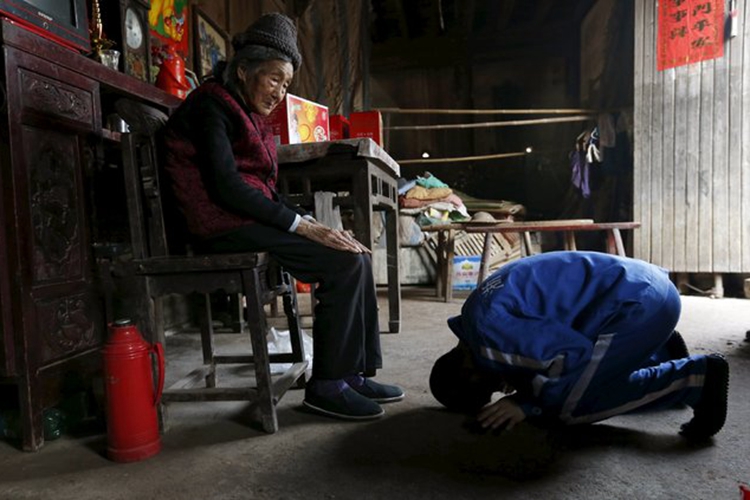During the Spring Festival, when loved ones from different places gather to celebrate, people strengthen family bonds by visiting, with folk beliefs thriving during this time. In addressing conflicts between Christian faith and Chinese culture, Pastor Y from East China proposed three principles.
Three principles
Pastor Y illustrated the principle of "acting in faith" with a personal experience. A Christian man once approached him, concerned about another Christian man wearing clothes with dragon patterns. In the Year of the Dragon, some believers associate dragons with the forces of Satan, based on Revelation 12:9. While some see dragon patterns as artistic and unrelated to idol worship, others believe they can attract spiritual attacks. Pastor Y suggested that individuals act according to their level of faith.
Second, refrain from passing judgment on each other. The Apostle Paul dealt with a similar problem in Romans 14:6, “He who eats meat, eats to the Lord, for he gives thanks to God; and he who abstains, does so to the Lord and gives thanks to God.” Pastor Y emphasized the importance of not judging one another in matters of eating, drinking, or observing special days, for the Lord has accepted them.
Pastor Y believes that it is important not to stir up strife or destroy church unity because of these issues. If a Christian is weak in faith because of the judgment, it is more serious than eating, drinking, and keeping the day itself.
Additionally, the pastor underscored the significance of love over arguing about the faith when dealing with others. Referring to food, Paul said in Romans 14:20–21, “It is better not to eat meat or drink wine or to do anything else that will cause your brother to fall.” Some believe that all foods are acceptable, but it is wrong to eat something if it causes a person who only eats vegetables to stumble.
Additionally, Pastor Y also reminded believers to discern whether their participation in certain activities is following traditions or worshipping idols. Participation is acceptable if a Christian expresses emotions and nostalgia aligned with cultural practices and not conflicting with faith. However, some customs may originate from idol worship, so believers are required to navigate with love and build faith in overturning idolatrous practices.
Understand the characteristics of customs and build a gospel culture
Pastor Y stressed the importance of establishing a Christian culture, recounting his experience attending a funeral of his grandfather in his hometown.
During the cremation ceremony, a company organized a brief ritual, including bowing and kowtowing by the younger generation, of which Pastor Y was unaware. Communicating with the elders, he explained the Christian opposed stance against kowtowing. Initially upset, the elders felt that the youth lacked filial piety. Upon learning that Y is a Christian, the crematorium staff came over to assist, saying, "It’s ok. Christians do not kowtow, which we understand." As it turns out, Christian funerals are quite popular in the local area. Churches often send choir members to conduct ceremonies with joyful proceedings. After hearing the explanation from the staff, the elders understood. Pastor Y and his wife also expressed their fond memories of their grandfather through bows and flowers, in accordance with the practices advocated in our country.
Y highlighted that Christians may have limitations but can express the same emotions in ways aligned with their faith. While elders think kowtowing is a sign of respect and filial piety, Christians should see the essence behind customs and find alternative expressions of love without breaking tradition and protocol. Through the perseverance of many Christians, a gospel-centered culture can gradually take shape.
- Translated by Abigail Wu












